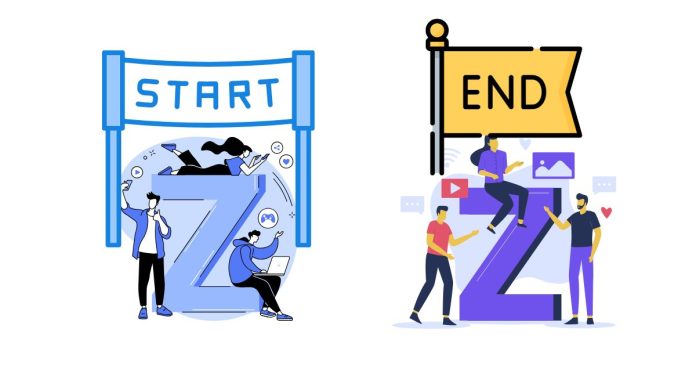If you’ve ever wondered, When does Gen Z start and end?—you’re not alone! The question of when each generation begins and ends is a topic of ongoing discussion among demographers, researchers, and sociologists. While there’s no universally agreed-upon definition, understanding the general time frame for Gen Z can help clarify the characteristics that set this generation apart.
In this blog post, we’ll dive into the birth years associated with Generation Z, explore the defining features of the generation, and highlight how it differs from those that came before and after it.
What Are the Birth Years for Generation Z?
Generation Z, often referred to as Gen Z, includes individuals born between the mid-to-late 1990s and the early 2010s. While the exact start and end years may vary depending on the source, most commonly accepted birth years range from 1997 to 2012.
Here’s a quick breakdown:
- Start of Gen Z: 1997
- End of Gen Z: 2012
These years are based on various sociological factors, such as the emergence of technology, global events, and the influence of social media, which helped shape Gen Z’s unique characteristics.
What Defines Generation Z?
Generation Z is known for being the first generation to grow up with the internet, smartphones, and social media as integral parts of daily life. Here are some defining features of Gen Z:
1. Digital Natives
Unlike previous generations, Gen Z is truly a generation of digital natives. They’ve been exposed to the internet, social media, and smartphones from an early age, which has significantly influenced their communication, learning, and entertainment habits.
2. Social Media Savvy
Social media plays a major role in the lives of Gen Z. Platforms like Instagram, TikTok, and Snapchat are central to their social interactions and self-expression. Gen Z uses social media not just for staying in touch, but also for shaping their identities, learning about new trends, and engaging in activism.
3. Diverse and Inclusive
Gen Z is considered one of the most diverse generations in history. With a greater emphasis on inclusivity, this generation values equality, diversity, and representation across all aspects of society, from race and gender to sexual orientation and beyond.
4. Pragmatic and Financially Minded
Having grown up during times of economic uncertainty, including the Great Recession and the global COVID-19 pandemic, Gen Z tends to be more financially cautious and pragmatic. Many Gen Z individuals are focused on saving money, starting side hustles, and seeking financial stability at a young age.
5. Environmental Awareness
Gen Z is deeply concerned about climate change and environmental sustainability. Many members of this generation are actively involved in advocating for policies that address climate issues and promote green living.
How Gen Z Differs from Millennials and Gen Alpha
It’s helpful to place Gen Z in the context of other generations to understand its unique characteristics:
- Millennials (born 1981-1996): Gen Z’s immediate predecessor, Millennials, grew up with the internet but experienced a world without smartphones and social media during their early childhood. Millennials are often characterized by their adaptability, optimism, and focus on personal growth.
- Gen Alpha (born 2013 and beyond): Gen Alpha is the generation following Gen Z. The oldest members of Gen Alpha are just entering school, and they will likely be the most technologically immersed generation yet, as they will grow up with AI, virtual reality, and even more advanced technology than Gen Z.
Why the Exact Start and End Dates Matter
While generational labels can sometimes feel arbitrary, understanding the start and end dates of Gen Z helps researchers and marketers understand the behaviors, preferences, and influences that define this group. For example, Gen Z is more likely to be influenced by online trends, value authenticity over traditional marketing, and expect companies to take a stand on social and environmental issues.
So, when does Gen Z start and end? The general consensus is that Gen Z begins around 1997 and ends around 2012. This generation is defined by its digital nativity, social media fluency, and focus on diversity and environmental issues. While the exact years may vary slightly depending on the source, the qualities of Gen Z remain consistent: a tech-savvy, socially aware, and financially pragmatic group. Understanding the traits of Gen Z can help businesses, educators, and society as a whole connect with this dynamic and influential generation.


